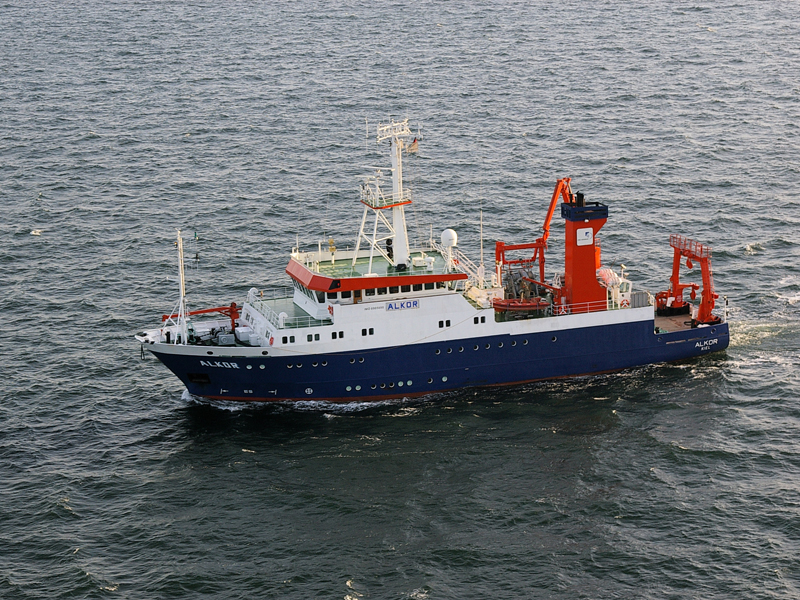ALKOR AL476
- Area:
- Baltic Sea
- Time:
-
13.04.2016 - 28.04.2016
- Institution:
- GEOMAR
- Chief scientist:
- Jan Dierking
Over the past 50 years, the Baltic Sea has undergone substantial changes in the context of climate change and increasing anthropogenic pressures, including warming, acidification, eutrophication, de-oxygenation, overfishing, spread of invasive species and increasing spatial use conflicts between shipping industry, fisheries, offshore wind energy and marine protected areas. The ecological and economic consequences of these drivers are difficult to assess by short-term scientific projects. This stresses the importance of long-term data series allowing insights into decadal scale changes. The scientific work on board of RV Alkor during the cruises AL476 (April 2016) and AL478 (May 2016) continues one of the best long-term data series for the pelagic areas of the Baltic Sea. Specifically, we will continue multi-disciplinary lines of work that have been conducted in similar form since 1986, covering large parts of the deep basins of the Baltic (Kiel Bight, Arkona-, Bornholm- and Gotland Basin, and Gdansk Deep). This will include scientific pelagic fisheries, sampling of pelagic foodwebs (phyto- and zooplankton), oceanographic measurements and hydroacoustics, and will allow us to assess changes in species composition, biodiversity (including on the genetic level), foodweb structure and functioning, the spread of invasive species, and physical/hydrographic parameters. The cruises since 2014 have been of particular interest, because after years of “stagnation” (i.e., lack of inflows more saline and oxygenated North Sea water), several large inflows have taken place, raising the question how the ecosystems of the Baltic are reacting to this hydrographic “rejuvenation”. Both cruises are contributing to the international multi-partner project EU BONUS BIO-C3 coordinated by the GEOMAR, which includes a number of different projects within the Research unit Evolutionary Ecology of Marine Fishes at GEOMAR.



